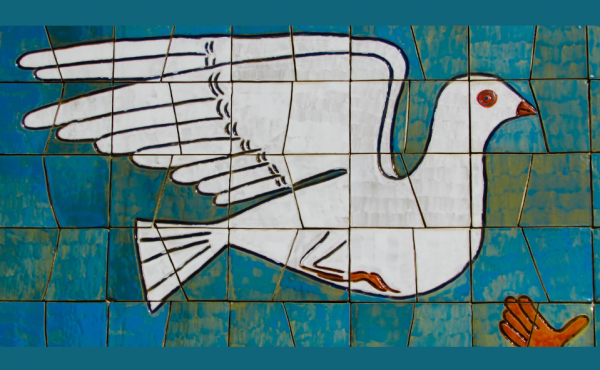December 14, 2023
How Can We Respond?

This is the third version of this blog that I’ve written. I couldn’t figure out why the first two versions left me feeling uneasy, until I realized that it wasn’t the content, but my underlying fear of publishing something that might come under attack. Social media, and more precisely, how we interact with social media, has trained me to avoid controversy, even if I’m raising legitimate points. The days of social media being a public forum for intelligent conversation are long gone.
The horror of war continues to unfold in the Middle East. The attack on Israel by Hamas was barbaric and shocking. Over 1,200 people were killed, and more than 200 people kidnapped, including toddlers and the elderly. They are a terrorist organization, committed to the eradication of Israel and the Jewish people. They have no interest in peace, nor are they committed to the well-being of the Palestinian people. Most of the world agreed with Israel’s declaration that Hamas must be eliminated.
Israel’s retaliatory response was swift and brutal. As of the writing of this blog, over 12,000 Palestinian citizens, half of them children, have been killed. 1.1 million people have been displaced from their homes, the majority of which have been destroyed. Israel justified the destruction of Gaza City stating that the network of tunnels that Hamas has constructed, and from which they operate their terrorist network, run directly beneath homes, hospitals, and other parts of the civilian infrastructure.
Those are the facts.
I have friends who are Jewish. I have friends who are Palestinian. They are all suffering. I had a naïve hope that, as one human family, we might demonstrate compassion for each other in the wake of such shared pain.
My take is that we’ve failed miserably. We’ve become more tribal, more positional, more closed off, and far less open to listening.
Hate crimes against Jews, Palestinians, and Arabs in the US and abroad have skyrocketed. Anti-immigration sentiment and the hatred of “the other” is so rampant that fascists are being elected in South America and Europe. Jews writ large are being blamed for the policies of the Netanyahu government. All Palestinians are being lumped together with Hamas.
Social media is far from an accurate measure of public sentiment, but it does provide some clues as to how people are thinking.
I’ve seen posts telling me that my Jewish friends are not OK. I’ve seen responses to those posts stating that neither are my Palestinian friends.
Comments about genocide being committed against the Palestinian people are met with replies reminding us about genocide against the Jewish people that has occurred multiple times throughout history.
Palestinians are being challenged to condemn the attack on Israel. Jews are being challenged to condemn the scale of the counterattack in Gaza.
And then there is the battle about DNA, geography, history, and who rightly deserves the land now called Israel, the West Bank, and Gaza.
What all these comments have in common is that they represent just how isolated we’ve become from each other. They seek to prove who is right and who is wrong. Yet they miss the heart of the matter: a shared grieving brought about by the lack of commitment to Jews and Palestinians living side-by-side in peace.
Is the suffering of a Jewish woman who has lost her child any different from the suffering of a Palestinian woman who has incurred the same loss? Of course not.
The real issue is peace. Hamas aside, I would hope that what the Jewish and Palestinian people both want is peace. For themselves, for their children, for their children’s children. How can I be hopeful? Every time a Jewish or Palestinian friend asks me to keep them in prayer and to pray for their Palestinian or Jewish neighbors, I am hopeful.
Which brings me to my final point.
How are we, as Christian communities, to respond?
By convening conversations. We must engage with each other. This is a challenge that will not be easily solved, and it will require radical compassion and an infinite amount of love. Fortunately, we worship a God of compassion and love and have an infinite source from which to draw.
These are big conversations, and the Church can play a positive role in convening faith leaders from Jewish, Muslim, and Christian traditions to at least model what respectful dialogue sounds like and looks like. We can break bread together, pray together, be together. Most importantly, we can listen to each other with a willingness to be moved.
This is slow work. It is hard work. It is essential work.
We’re sitting on a powder keg, and it’s up to us to do our best to diffuse it. We must pray, of course, and we must also act. Faith, without works, is dead.





